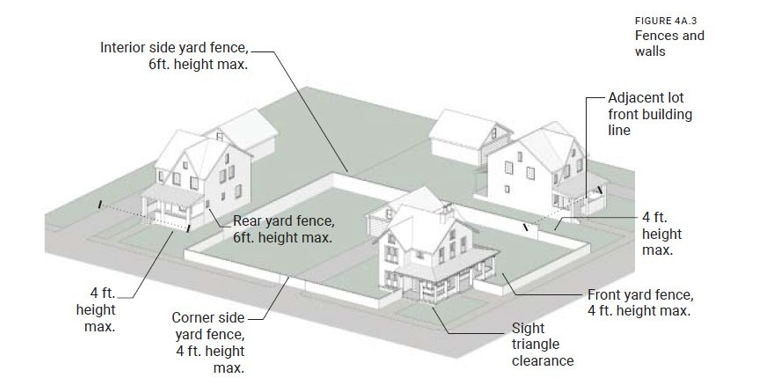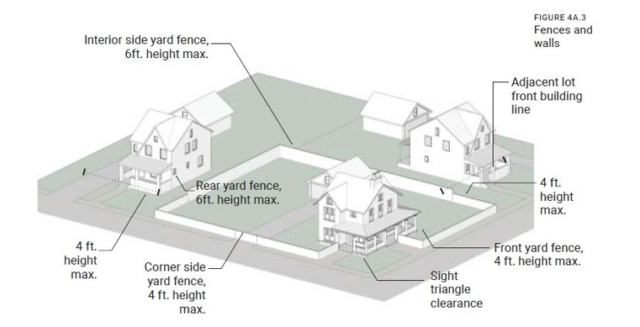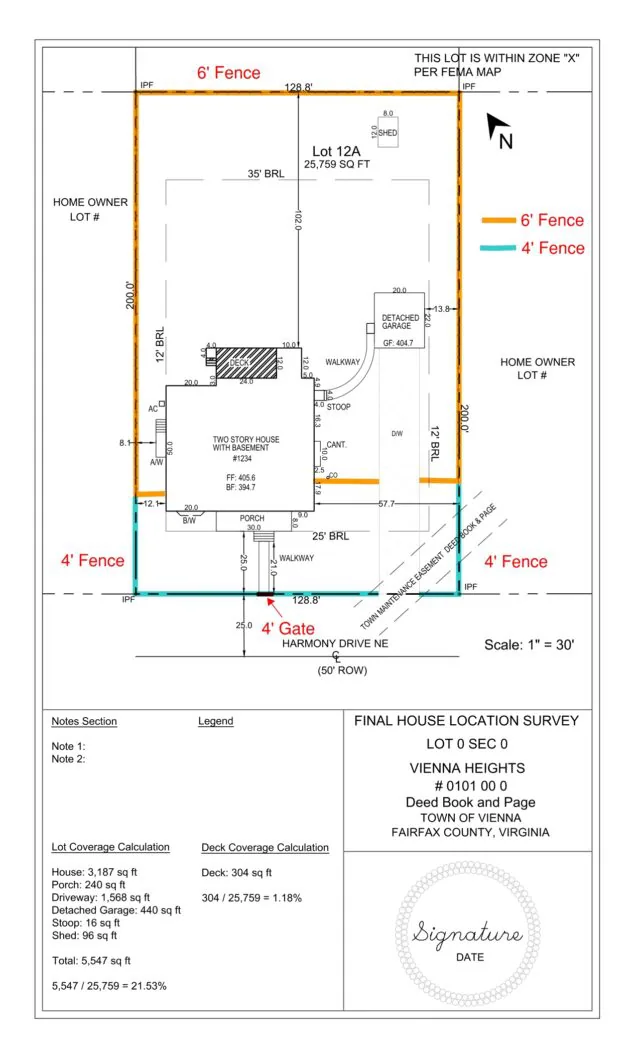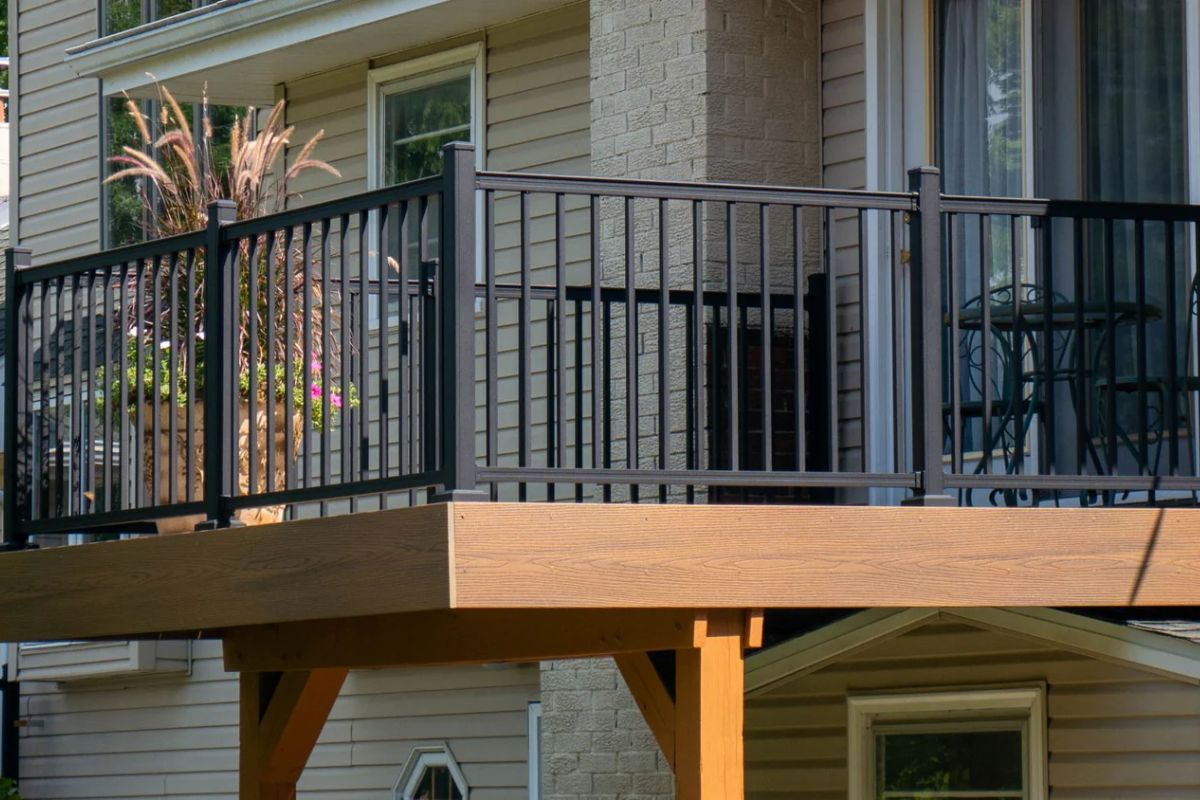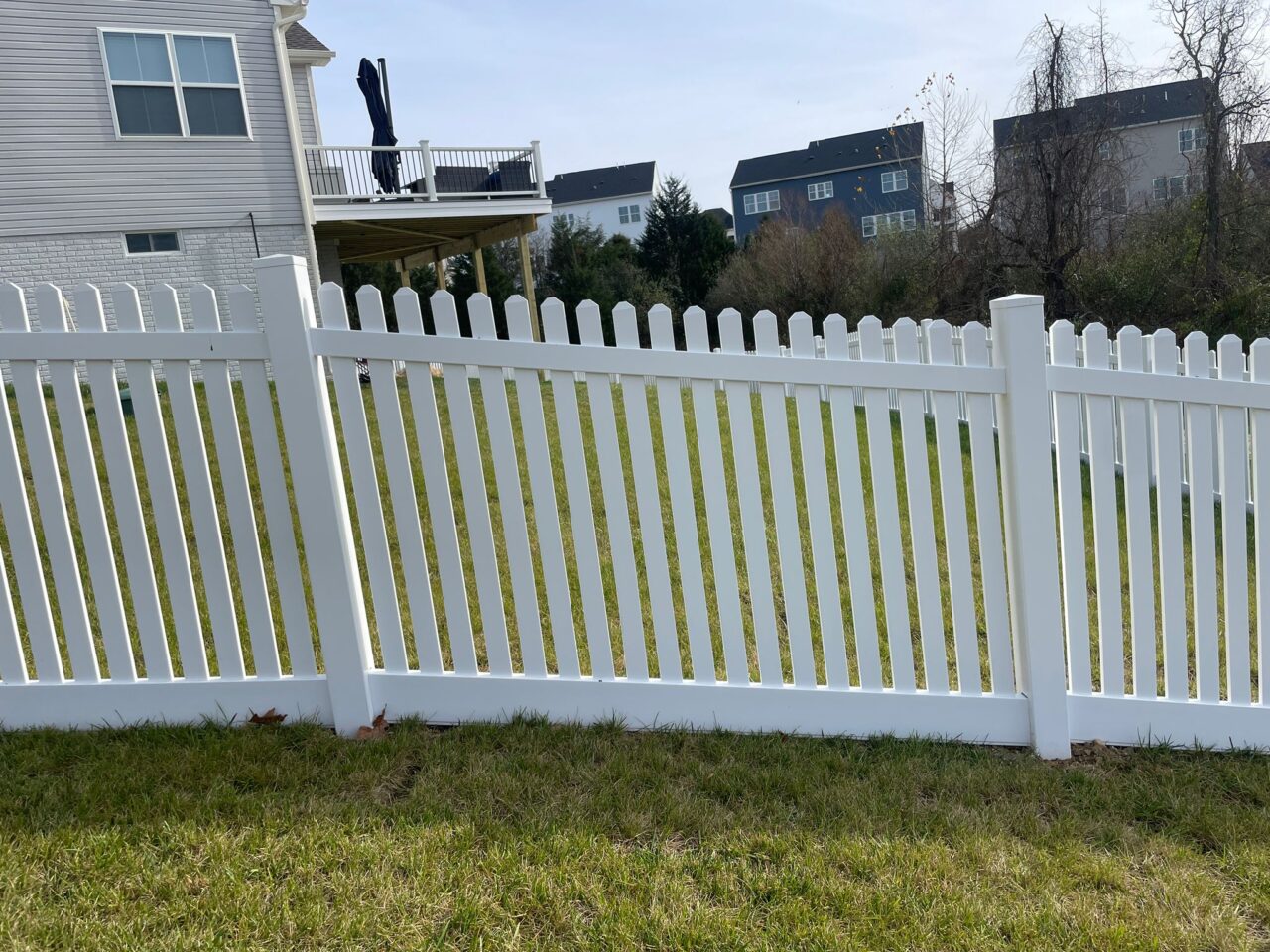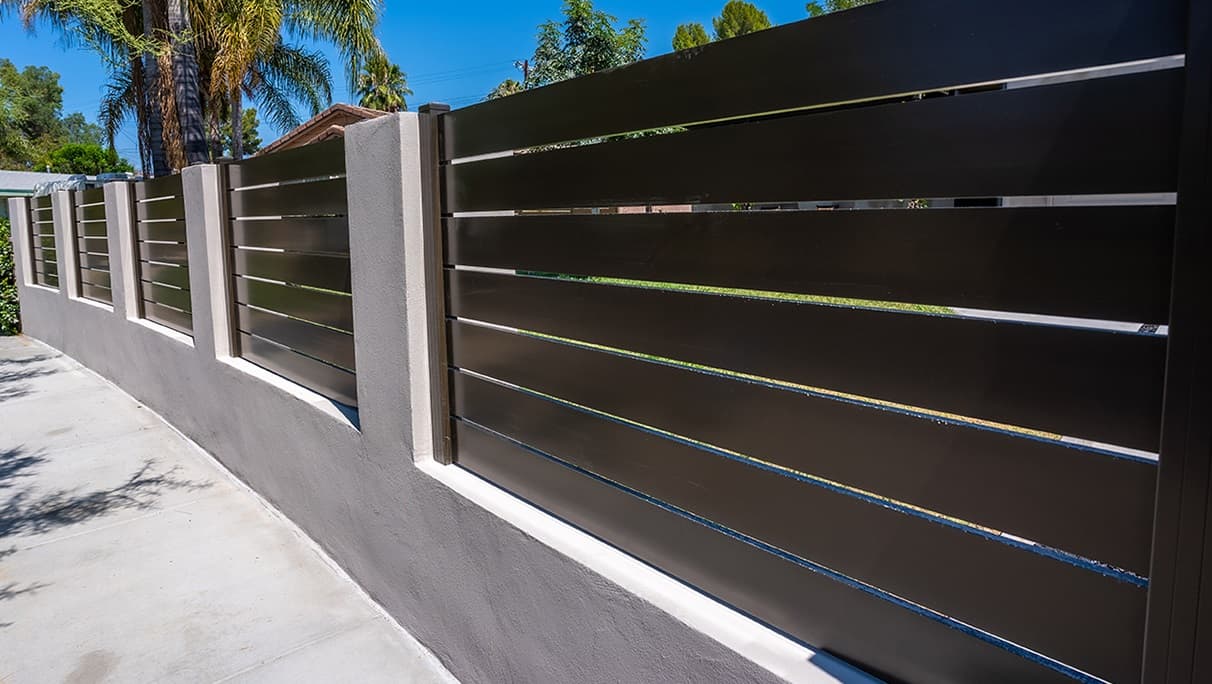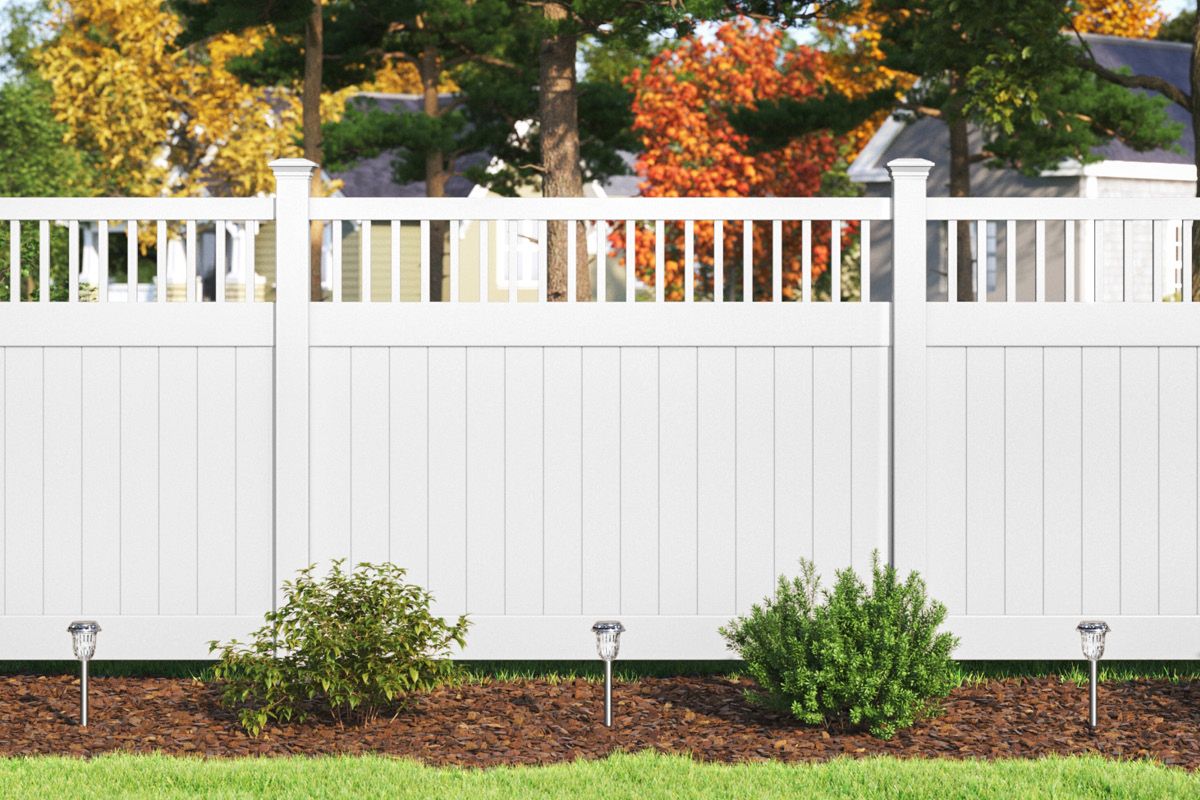TOWN OF VIENNA | REGULATIONS FOR FENCES AND FENCE HEIGHT
Section 18-410 Fences
- Fence height standards shall be as follows:
- Front Yard: Four (4) feet (Note: sight triangle §18-412)
- Interior Side Yard: Six (6) feet
- Corner Side Yard: Four (4) feet max. (Note: See sight triangle §18-412)
- Rear Yard: Six (6) feet
- Fences on corner lots may not be greater than four (4) feet in height in the area between the extension of the neighbor’s front building line and the right-of-way. See Figure 4A.3.
- All fences or screens shall have the finished side facing the street and the adjoining
- The use of barbed wire is not
- Temporary fences for construction sites and tree protection are exempted from these standards but shall comply with the requirements of the Uniform Statewide Building
Section 18-513 Fences and Walls
TOWN OF VIENNA | DETERMINING STRUCTURE HEIGHT FOR ADDITIONS & RENOVATIONS
- The provisions of this section shall apply to all construction, substantial reconstruction, or replacement of fences or wall s not required for support of a principal or accessory structure, and to any other linear barrier intended to delineate different portions of a lot.
- Temporary fences for construction sites and tree protection are exempted from these standards but shall comply with the requirements of the Uniform Statewide Building Code.
2. Location and Height.
- Fences or walls related to a private property shall not be placed in the public right-of-
- Fences and walls are permitted adjacent to the property line between two or more parcels of
- Fences and walls may be located within any required
- Fences shall be a maximum of six (6) feet in height within the area of any required yard setback, with the following exceptions:
- Fences on residentially zoned properties shall not exceed four (4) feet in height between the front of the principal building and street.
- Fences must comply with site triangle See §18-514.
- Fence height in the front yard may be increased to six (6) feet maximum, provided it is approved as part of a conditional use permit for the use.
- Fences used for security and protection of Town and/or government facilities, structures and/or utilities, may exceed the height restriction set forth in this Article.
- Building setbacks, as described in Article 2, shall apply to all retaining walls five (5) feet or greater in height and to all decorative walls four (4) feet or greater in height.
- Decorative walls shall follow the same height limits set for
- All fences shall have the finished side facing the street and the properties that are adjacent or
- Fence Materials. Use of barbed wire, razor wire, concertina wire and/or other security enhancement devices is prohibited except for security protection of Town and/or government facilities, structures and/or utilities if approved by resolution of the Town Council. Such resolution shall be based upon the recommendation of the Director of Public Works and Chief of Police and upon a finding by the Town Council that such measures are necessary in the interest of public safety and security for such facility,
structure and/or utility.
Questions? Contact Planning and Zoning at DPZ@viennava.gov.

